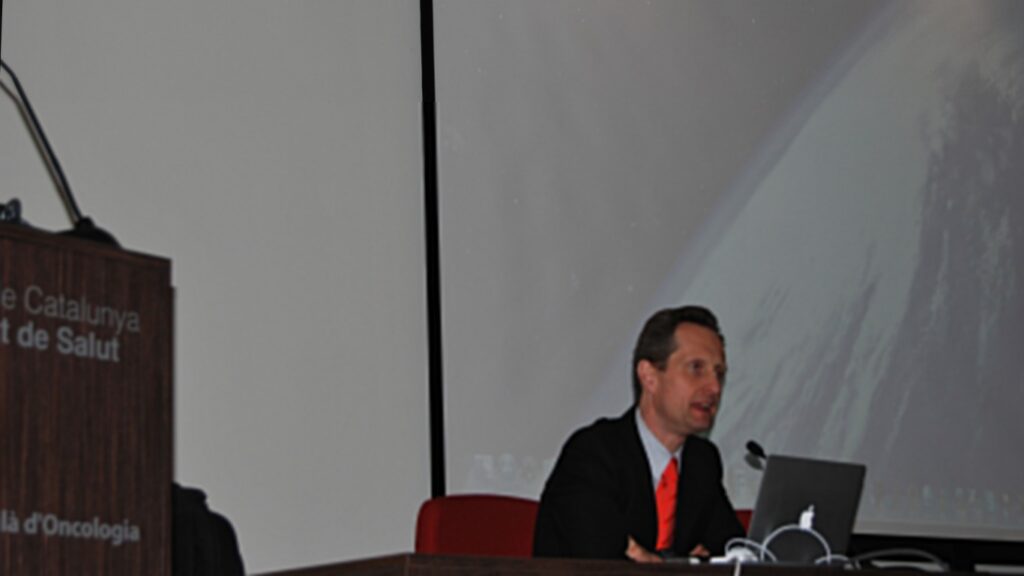The researcher Jesus Garcia Foncillas has recently joined the Institute of Health Research ‘Fundación Jiménez Díaz’ as director of the Cancer Research Unit. There he continues his research in the field of microRNA, how they control the expression of genes and how they can be useful in clinic. He explained his progress in the seminar IDIBELL on February 3.
MicroRNAs are short sequences that can block or degrade messenger RNA sequences, responsible for producing proteins. Depending on which messenger RNA it blocks, they have a paper or another. “If bind to a messenger RNA encoding a tumor suppressor gene, the microRNA have an oncogenic effect, if acts on the messenger RNA of an oncogene, it will be antioncogenic” explained Garcia-Foncillas.
His team investigates the many alternative microRNA mechanisms to regulate the gene expression “we must keep in mind that a single microRNA can bind between 20 and 40 different mRNAs with diverse effects, we must also take into account changes epigenéneticos and small changes in the nucleotide sequence of the microRNA that transcend to these 20 or 40 genes … “. “The most important,” explains Garcia-Foncillas “is how we can apply the knowledge of these mechanisms to clinical practice”.
“We have seen that some microRNAs have prognostic factor in gastric cancer and colon cancer.” I.e. patients with a microRNA that regulates expression of target genes of drugs will respond in a particular way to this drug. “What we want is to create vectors capable of carrying the microRNA sequence that makes a patient sensitive to the drug to target cells.”
Currently, the team of Garcia-Foncillas is awaiting approval from two clinical trials ‘first in human’ (first administration in humans). “In research to get a little success you must go through several failures. In my experience, only one in ten of these ‘first in human’ trials works, but we keep trying. “

